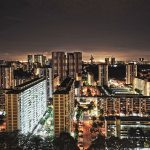In responding to questions about the Urban Redevelopment Authority’s (URA) public consultation exercise on short term accommodation (STA) from 16 April to 31 May 2018, Minister for National Development Lawrence Wong said many respondents supported the need for regulations on STA, given that STA can cause negative externalities to other residents.
Key concerns raised during the public consultation exercise include safety, security and privacy, as well as abuse of common property. Many also supported regulating STA platform operators, for example through a licensing framework.
Mr Wong said that “one of the proposals was to require the Management Corporation of a strata-titled residential development to obtain the support of at least 80% of the share value in the development before STA can be permitted in any residential unit. The intent is to give home-owners a say in whether or not to allow STA in their development.”
https://www.icompareloan.com/resources/home-buyers/
He added: “There was mixed response to this proposal. Some respondents felt that an 80% threshold would be unfair to the minority who do not support STA, but have to accept the presence of STA guests in their developments. On the other hand, there were some who felt that an 80% threshold was too high, and that it would be difficult to obtain sufficient votes in support of STA among home-owners. URA is now in the process of carefully studying the feedback before deciding how to take this issue forward, including how to structure the final regulatory approach, and whether there is a need for any legislative amendments.”
Some Members of Parliament asked the Minister about the impact of legalising short term accommodation on the hospitality industry. In responding to such questions, the Minister said: “This is something that we have indeed considered very carefully. The proposed regulatory framework includes controls which are similar to those imposed on the hospitality industry.”
“For example, under our proposed safeguards, STA hosts must collect and record the personal details of their guests, and comply with fire safety regulations such as the provision of fire extinguishers in their units. We have also proposed licensing platform operators, so that they can also help to ensure that STA activities do not cause problems for other residents. The intent is to provide a more level playing field between the STA sector and the hospitality industry.
“As I mentioned, these are proposals that we have put out. We have done one round of consultation, received feedback, there are mixed views, so URA is studying the matter very carefully to see what is the best way forward. Even as we consider the deliberations very carefully, I would like to emphasise that the minimum stay duration of three consecutive months for private residential properties still applies. URA will take enforcement action against those who breach this rule.”
Mr Wong revealed that from 2015 to 2017, URA received 1,808 reports of short term accommodation in private residential units. In the same period, the Housing and Development Board (HDB) received 390 reports of STA in HDB flats.
https://www.icompareloan.com/resources/new-property-cooling/
He added: “The time taken by URA and HDB to investigate a report of unauthorised STA depends on the circumstances of each case. Conducting ground inspections and interviews to obtain evidence of an offence can take several months in some instances. However, if the party making the report is able to provide details and documentary evidence of the suspected offence, investigations can be completed more expeditiously.”
HDB flats (in which about 80 percent of Singaporeans stay) are subject to a minimum rental period of six months while for private homes it is three consecutive months. Owners of private homes will only be allowed to do short term accommodation rental if they have permission from the Urban Redevelopment Authority (URA).
Government officials have justified the minimum rental period by saying that it minimises disturbances to neighbors. The home-rental service has drawn fire elsewhere from officials upset about lost revenue from hotel taxes.

Airbnb’s head of public policy for Southeast Asia had earlier said that “for us (Airbnb) we feel that every person should have the right to share their own private residence. We don’t think that anyone should be criminalized for sharing their home.”
Airbnb’s Regional Director, Siew Kum Hong, in speaking to Vulcan Post on the topic said: “we (Airbnb) believe that Singapore’s current rule on home sharing is not feasible, not tenable.” He further hopes that the Government’s public consultations would lead it to make “fair and progressive regulations that are commensurate with Singapore’s status as a hub for technology, innovation, and new business models.”
Airbnb said in March that it has told Singapore’s government that, if asked, the company would not list HDB flats on its platform.
According to the Airbnb which leverages on short term accommodation for it business, “there are 8,100 Singapore listings currently, and 60% of hosts in Singapore sharing their own homes on an occasional basis. On average, each host in Singapore rents out their space for 37 nights a year, and earn approximately US$3,400 annually from the arrangement. This extra income allows the hosts to use it as supplementary income to help them pay bills and make ends meet.”
Table of Contents
Mr Paul Ho, chief mortgage consultant at icompareloan.com said that “an ideal property investment should have no vacancies, as when they do happen vacancies are a major drain on landlords. This is when property changes from cash generating assets to liabilities.”
He added: “This is where short term accommodation rentals, such as those facilitated by Airbnb, can be useful in offsetting some of the costs involved for an investor.”
If you are home-hunting, our Panel of Property agents and the mortgage consultants at icompareloan.com can help you analyse its effect for you.
The services of our mortgage loan experts are free. Our analysis will give best home loan seekers better ease of mind on interest rate volatility and repayments.
Just email our chief mortgage consultant, Paul Ho, with your name, email and phone number at paul@icompareloan.com for a free assessment.






